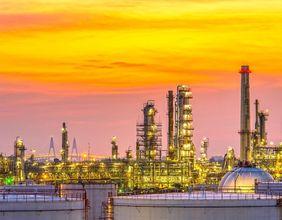Highlights
- European carmakers face challenges with tariff threats and emissions mandates.
- Stellantis plans to close its Luton plant amid an EV transition.
- Industry voices concerns over EU emissions fines and economic strain.
European automakers are navigating turbulent conditions as recent developments signal significant challenges. Tariff threats from incoming U.S. policies, plant closures in the UK, and strict EU emissions mandates are shaking the automotive industry. These challenges are pushing companies like Stellantis (NYSE:STLA) and Volkswagen (ETR:VOW3) to adapt their operations under increasing financial strain.
Tariff Pressures Threaten Supply Chains
The U.S. automotive sector faces disruption after tariff proposals by President-elect Donald Trump, including a 25% levy on imports from Mexico and Canada, alongside a 10% tariff on Chinese goods. Mexico plays a crucial role in global car production, exporting millions of vehicles to the U.S. annually, many manufactured by European automakers.
Stellantis (NYSE:STLA) and Volkswagen (ETR:VOW3) are significantly exposed. Stellantis relies on Mexico for a substantial portion of its North American sales, including high-margin vehicles like Ram pickups and Jeep Compass SUVs. Meanwhile, Volkswagen imports a significant share of its U.S. vehicle supply from Mexico, with models such as the Jetta and Tiguan being heavily impacted. Analysts estimate potential losses in pre-tax profits exceeding billions for these companies if tariffs are implemented.
Additionally, supply chains integral to automotive production are under threat. The U.S. sources car parts extensively from Mexico, and disruptions may cause production delays and rising costs. Although shifting production to the U.S. is an option, it involves high investment during a challenging economic period for the sector.
Stellantis to Shut Historic Luton Plant
Stellantis announced its plan to close the Luton plant in April 2025, affecting 1,100 workers and marking the end of over a century of vehicle production in the town. This decision is attributed to the UK’s Zero Emission Vehicle (ZEV) mandate, which requires automakers to meet increasing EV sales targets.
The company aims to consolidate operations at Ellesmere Port, its battery-electric vehicle manufacturing site, where investments are being made to expand electric van production. Local leaders have criticized the decision, emphasizing the significant impact on the community.
Calls for EU Emission Rule Adjustments
German Chancellor Olaf Scholz has joined calls to reconsider EU emissions penalties, urging funds to be redirected toward modernizing production facilities. Automakers like Stellantis (NYSE:STLA) and Volkswagen (ETR:VOW3) have stressed that stricter rules, combined with slow EV adoption, are adding economic pressure.
The automotive sector, a critical part of European economies, continues to adapt to a rapidly shifting regulatory landscape, highlighting the urgency for flexible strategies.


_06_24_2025_03_45_59_650550.jpg)



